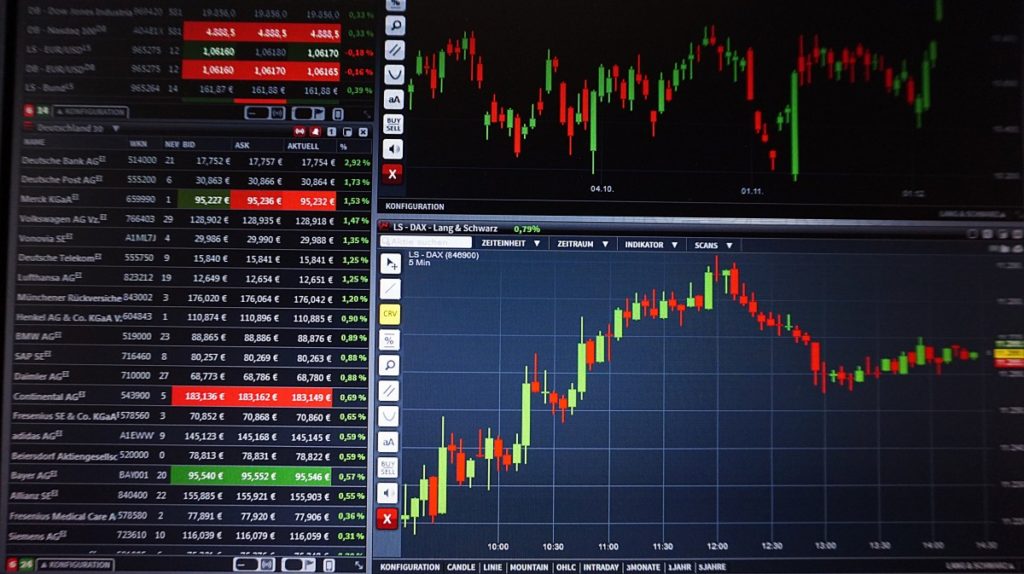Since its peak 20 years ago, the CAC 40 French stock market index has lost nearly 30% of its value
On September 4th, 2000, the CAC 40 was close to 7000 points. It has experienced several shocks from which it has still not recovered.

Just 20 years ago the CAC 40 was close to 7,000 points. On September 4th, 2000, the leading index of the Paris Stock Exchange ended the session at 6922.33 points. Two decades later, the Paris Stock Exchange’s flagship index is still struggling to reach around 5,000 points.
In the meantime, there have been four major shocks. Starting in 2000, the bursting of the Internet bubble shattered many illusions. Professionals have bitter memories of this period. “The market had gone into a true collective madness,” recalls one professional. The backlash was painful. The CAC 40 fell to 2401.15 points on March 12th, 2003.
After recovering to nearly 6,200 points in 2007, it plunged back with the subprime crisis. These high-risk home loans spread their poison throughout the global financial system. The shock was again severe: the index fell to 2519.29 points on 9 March 2009.
>>> READ ALSO – France jumps in the global innovation ranking!
The sovereign debt crisis from 2010 onwards has again caused profound shocks. More recently, the Covid 19 pandemic has once again sent the CAC 40 to the floor. The crisis has been of unprecedented violence. Between February 21st and March 18th, the index went from over 6,100 points to almost 3,600 points. A fall of over 40% in less than a month. Almost 800 billion euros went up in smoke. But each time, the markets recovered. Since its low in March, the CAC 40 has regained over 38%. A rebound of unprecedented vigour. Central banks and governments seem to have learned the lessons of previous crises. “They have reacted massively and quickly, which has largely contributed to reassuring the markets” explains Frédéric Rollin, investment strategy advisor at Pictet AM. “But in reality, with rates close to zero virtually everywhere, investors have no proper choice. If they want returns, they have to turn to equities,” adds Jean-Jacques Friedman, Investment Director of Natixis Wealth Management. This is what traders call the Tina effect (There is no alternative), which has largely contributed to the rise in the indices. Since the crisis of 2007, when many investors missed the upward trend, they are now rushing at every lightning bolt: it is the Fomo effect (Fear of missing out) that has also contributed a lot to the market’s rebound.
However, the CAC 40 owes this recovery to a handful of stocks. Over the past two decades, the companies that make up the CAC 40 have enjoyed varying fortunes, and the index has transformed.
>>> READ ALSO – Covid-19 crisis: French people have saved a record 85 billion euros
The “khol”, CAC 40 growth champion
In September 2000, France Télécom was the first capitalisation on the Paris Stock Exchange, at nearly 175 billion euros, ahead of Total (nearly 130 billion) and Alcatel (around 110 billion). LVMH, which was not yet in the top 10, is now the French and European leader, with a stock market value of over 200 billion euros, ahead of L’Oréal (around 156 billion) and Sanofi (106 billion). Total, (around 89 billion) is in fourth place and Hermès, which entered the flagship index only two years ago, is in fifth place with a stock market value of nearly 80 billion, followed by another luxury giant, Kering, with a capitalisation of 70 billion euros. “In recent years, as growth has become increasingly rare, investors have favoured companies positioned in buoyant niches and capable of posting steadily increasing profits despite this context,” explains Didier Saint Georges, member of the Strategic Investment Committee at Carmignac. The French champions of luxury goods, the Khol, namely Kering-Hermès-L’Oréal and LVMH, whose growth continues to surprise, now largely dominate the Paris Stock Exchange. They weigh over 500 billion euros on the stock market or about 30% of the CAC 40.
>>> READ ALSO – Taxes, VAT or tolls: French people’s cars bring a fortune to the State
The Gafam (Google, Apple, Facebook, Amazon and Microsoft) are driven by the same search for growth. Their surge on the stock market is even more spectacular. It has propelled Wall Street to historic records. While the CAC 40 is still losing 16% since the beginning of the year, the Nasdaq is climbing by nearly 30% and the S&P 500 by about 7%. If the French champions of luxury goods do not cause any proper concern, a good number of professionals are alarmed by the valuations of certain American tech stars and fear a severe backlash. “These stocks have benefited from a mediocre macroeconomic environment, if the economy picks up they should logically be abandoned in favour of more cyclical stocks. Paradoxically, their weight is such that the indexes risk suffering when investors pocket their profits,” says Didier Saint Georges. The economic recovery would then provoke a fall in the markets.